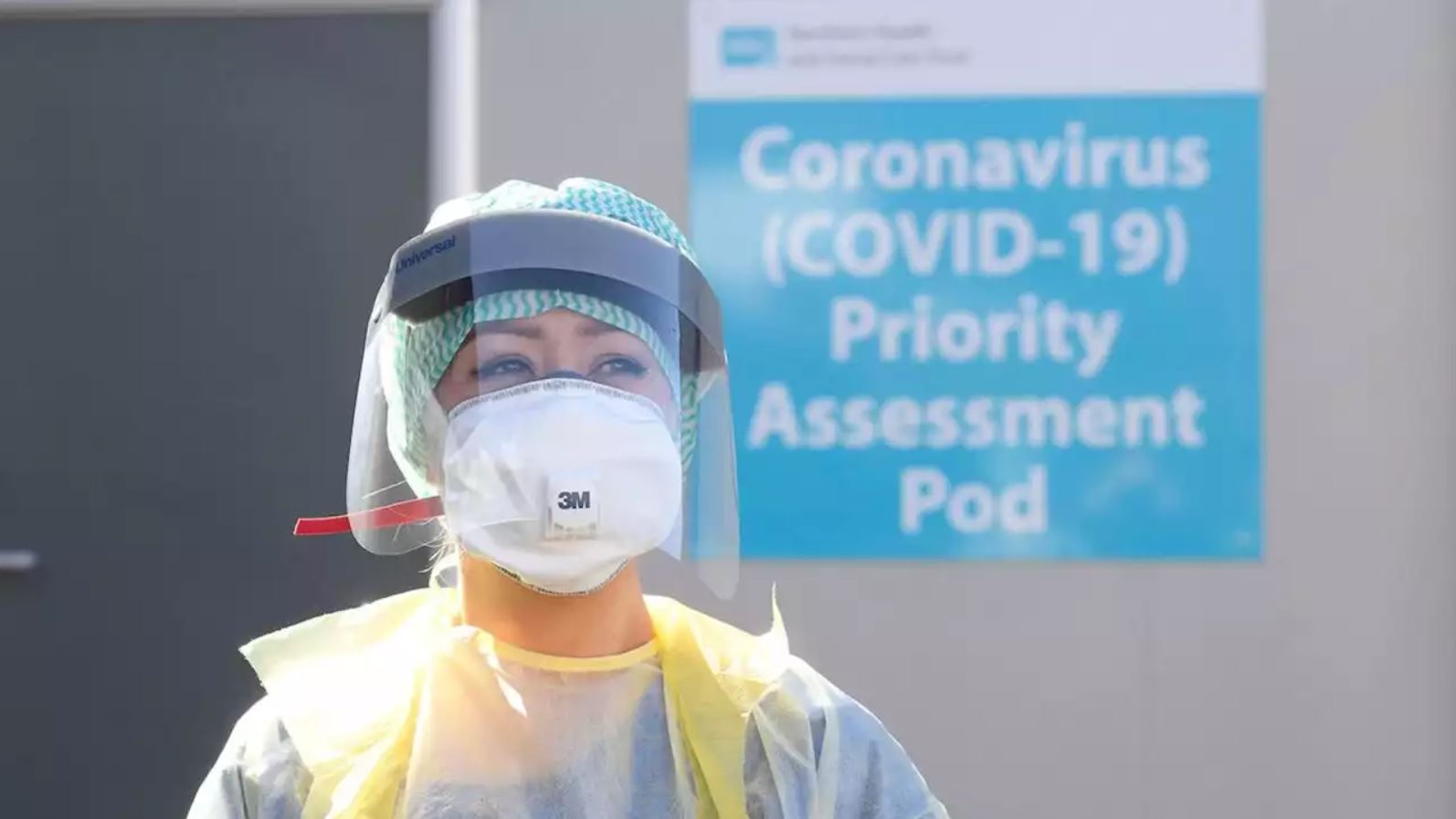In a previous post, we argued that the crononavirus crisis and panic could’ve been avoided. The systemic failures that occurred, the bailouts, and the finger-pointing make a good circumsantial case for believing that the crisis was manufactured and used to advance an agenda.
The failures have only deepened with the establishment’s stubborn refusal to alter course as an inexpensive treatment has been proven to be effective against the virus.
Chinese and French researchers have demonstrated the effectiveness of Chloroquine, an inexpensive Malaria drug that has been widely used for decades.
To be effective, Chloroquine needs to be administered as soon as possible after someone becomes infected with Corvid-19. And that requires widespread testing.
But such testing isn’t available in USA (nor, I think in other Western countries). Instead, people are told to stay home. And if they’re sick, they should self-isolate / social distance until they feel better or get worse. That means by the time someone finally gets treated, the effectiveness of Chloroquine will be impaired, making it likely that more powerful – and much more expensive – drugs will be needed.

Remdesivir is estimated to cost $900-1,000 per treatment while Chloroquine costs only a few dollars.
This blog post from a french public health expert describes the French research related to Chloroquine and the difficulty in getting recognition for this treatment option. Excerpts (emphasis is mine):
We must dare to say it: it is not the virus that kills (it is benign for healthy people), it is the chronic pathologies that have been allowed to develop for decades and that make it potentially fatal.
The four biggest factors that cause chronic disease are:
– Junk food.
– Pollution.
– Stress.
– Physical inactivity.Chronic diseases would be 80% preventable if we gave ourselves the means to protect the population rather than sacrificing their health for industrial interests. We have for decades granted guilty facilities to highly toxic industries to the detriment of the common good and the health of the population
[Although the virus is harmless to most] It is the existence of serious cases … which justifies the fact that one does not simply rely on group immunity….
In the absence … of treatment to protect or cure those at risk, the choice to let immunity build by letting the virus circulate appeared to be too dangerous. The risk to vulnerable people is such that it would be ethically untenable to take this direction, due to the seriousness of the possible consequences.It is in this complicated paradox between the very great harmlessness of the virus for the vast majority of people and its extreme dangerousness in certain cases that we are found stuck. We therefore adopted measures absolutely contrary to good practice: to give up screening for possibly sick people and to confine the population as a whole to stop the spread of the virus. Measures, in fact, medieval and problematic since they only slow down the epidemic at the risk of potentially even worse rebound phenomena. And that they lock up everyone when only a small minority are concerned. Conversely, all public health recommendations are to screen as many cases as possible, and to confine only positive cases until they are no longer contagious.
General confinement constitutes a poor last resort in the face of the epidemic when we lack everything that would make it possible to fight it effectively …
Why did we get there? Simply because we [healthcare policy makers] failed to put the right answers in place right away. The lack of tests and screening measures in particular is emblematic of this failure: while Korea, Hong-Kong and China made it the top priority, we were implausibly passive in organizing the provision of some technically simple thing.
Finally, we have significantly reduced the capacity of our hospitals over the past decade and find ourselves in shortage of intensive care beds and resuscitation equipment. Statistics show that the countries most affected are those that have massively reduced the capacity of intensive care services.
None of this had been thought of, despite the risk of a pandemic being a major health risk. The truth is that we have been completely overwhelmed. It’s obviously easier [for politicians] to play on war metaphors than to recognize our tragic lack of preparation…
The world’s leading expert in communicable diseases is Didier Raoult.
On February 26, he published a resounding video on an online channel (including the word “tube”) to affirm: “Coronavirus, end of game! “
The reason for his enthusiasm? The publication of a Chinese clinical trial on the prescription of chloroquine, showing the suppression of viral carriage in a few days in patients infected with SARS-CoV-2. Studies have already shown the effectiveness of this molecule against the virus in the laboratory (in vitro). The Chinese study confirmed this effectiveness in a group of affected patients (in vivo). Following this study, the prescription of chloroquine was incorporated into the recommendations for the treatment of coronavirus in China and Korea, the two countries which have succeeded in controlling the epidemic …
[Professor Raoult’s news was] … welcomed like a hair on soup, his colleagues denigrating his proposal from the start. World newspapers even went so far as to qualify his communication as “fake news”, an accusation taken up on the website of the health ministry for a few hours before being withdrawn.
However, Professor Raoult obtained authorization to conduct a clinical trial on 24 patients in his department and was called upon to be part of the multidisciplinary committee of 11 experts formed in March by the French executive, in order to “clarify the decision management of the health situation linked to the coronavirus “.
The results of his clinical study were released yesterday, confirming the achievement of dramatic therapeutic effects. The methodology is robust, since the Marseille IHU was able to compare the negation of viral carriage in patients who followed the protocol with patients from Avignon and Nice who did not receive the treatment.
“Those who have not received Plaquenil [a drug based on hydroxychloroquine] are still 90% carriers of the virus after six days, while 25% are positive for those who received treatment” , explains Professor Raoult.
But it does not stop there: … when we compare the percentage of positives with the combination of hydroxychloroquine and Azithromycin, we have an absolutely spectacular decrease in the number of positives.
A study published in the journal Lancet on March 11 had meanwhile revealed a new but essential data: the duration of viral presence is also reduced [from 20] to 4-6 days.
… The drastic reduction in viral delivery time not only gives hope for treating critical cases, but also reduces the time it takes for an infected person to stop being contagious. And therefore presents enormous prospects for preventing the spread of the virus.
[Yet reactions from the health community have been very negative.]
Taking refuge behind procedural fundamentalism is ethically indefensible when we talk about a drug that we know by heart, which has already demonstrated its effectiveness on other coronaviruses, confirmed on it by two clinical trials, and then that lives are at stake day after day!
Raoult noted with irony that it was not impossible that the discovery of a new therapeutic utility for a drug that had long been in the public domain would be disappointing for all those hoping for a Nobel Prize thanks to the shattering discovery of a new molecule or a vaccine… without forgetting the prospect of tens of billions of dollars in [drug company] revenue lost, because chloroquine literally costs nothing.
And he continued:
There is a health emergency and we know how to cure the disease with a medicine that we know perfectly well. You have to know where the priorities are. Faced with the reality of the epidemic, it’s necessary to stop the panic and test everyone without waiting for their case to get worse to better treat them.
. . .
The only strategy that makes sense is to screen massively, then confine the positives and / or treat them … as we see in China and Korea, which have integrated the association of massive screenings with the prescription of chloroquine in their treatment guidelines.
Neither Hong Kong nor Korea, two territories with the lowest mortality rates from Covid-19, imposed confinement on healthy people. They just organized themselves differently.
It is unfortunately glaring and revealed here in all its rawness … We have a quality medicine, but a medieval public health…
Systematic testing would be easy to institute, as long as it is a health priority and organized, which the Koreans have done in record time. In Europe, we have been completely overwhelmed, as if we were living in another time. Authorities now understand that this is a top priority – following the insistent WHO recommendations.
Producing the tests presents no difficulty: “It’s trivial PCR [polymerase chain reaction] that everyone can do, the question is the organization, not the technique …
Interest in chloroquine is now global with teams working around the world. If the very likely effectiveness of the drug is confirmed today, it will be a major game-changer.
Once those at risk of complications are treated promptly, the countless benign infections caused by SARS-CoV-2, which many of us will experience, will provide the mass immunity that will swallow this “pandemic” to the rank of a dirty mishap.
. . .
What is striking about chloroquine is the religiosity of the debate that this option provokes … Raoult is described as a kind of oddball guru (despite his remarkable scientific service) and the “belief” in this drug is described as expecting a “miracle cure” which would mislead people by dangling “impossible hopes”.
Once the emergency has passed … health and political officials will have to account for the way in which they have proved to be completely taken aback by a perfectly identified health risk, with a situation that was, in fact, very mild compared to what a true killer pandemic would be.
Let us recall that the pandemic risk has been feared for more than 30 years, [with scenarios such as] coming from the Far East as part of the subarctic tundras, at risk of releasing countless varieties of virus hitherto frozen under permafrost … cohorts of senior officials and academics were generously paid to anticipate these risks …
